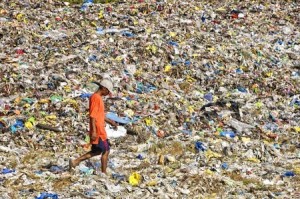
In a resolution, confirmed on third and final reading at last Monday’s regular council session, the councilors noted that “The disposal of medical and infectious bio-wastes has become a problem for hospitals, medical clinics, and other generators of solid wastes.”
They said that the problem was adding to pollution and the spread of disease in the metropolis.
The resolution cited a Supreme Court ruling which states that the Clean Air Act of 1999 does not absolutely prohibit incinerators as a mode of waste disposal “rather only those burning processes which emit poisonous toxic fumes are banned.”
“Even with the interpretation of the Clean Air Act by the Supreme Court, incinerators are still not allowed to be used today because of the absence of standards to determine if the incinerators are emitting poisonous and toxic fumes,” the resolution noted.
The council said that the US Environmental Protection Agency issued in 2011 emission standards for commercial and industrial solid waste incinerators that could serve as a model in the formulation of similar guidelines here.
Last March the city council sought amendments to both the Clean Air Act of 1999 and the Ecological Solid Waste Management Act of 2000 to remove the ban on incineration.
Citing increased solid waste buildup due to problems with availability of disposal facilities, the council said that a sustainable and long-term solution would be the setting up of an “in-city, state-of-the-art WTE (waste-to-energy) facility,” similar to those extensively used in the US, Japan, South Korea and developed countries in Europe.
But, the council said, the WTE facility cannot be set up as Section 20 of the Clean Air Act specifically prohibits incineration and the Solid Waste Management Act makes it a policy for the state to “adopt a systematic, comprehensive and ecological solid waste management program which shall ensure the proper segregation, collection, transport, storage, treatment and disposal of solid waste through the formulation and adoption of the best environmental practice in ecological waste management excluding incineration.”
According to the council, “The Quezon City local government could not pursue the proposed WTE project because of the stated provisions… and the amendment of said laws is necessary since technological advancements have ensured that such facilities can conform with the emission standards stated in section 19 of the Philippine Clean Air Act.”
RELATED STORIES
Green groups in QC hit council bid to lift incinerator ban
QC dads want ban on incinerators lifted to clear way for waste-to-energy plant
Joy Belmonte defends council, waste-to-energy tech